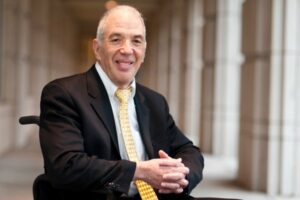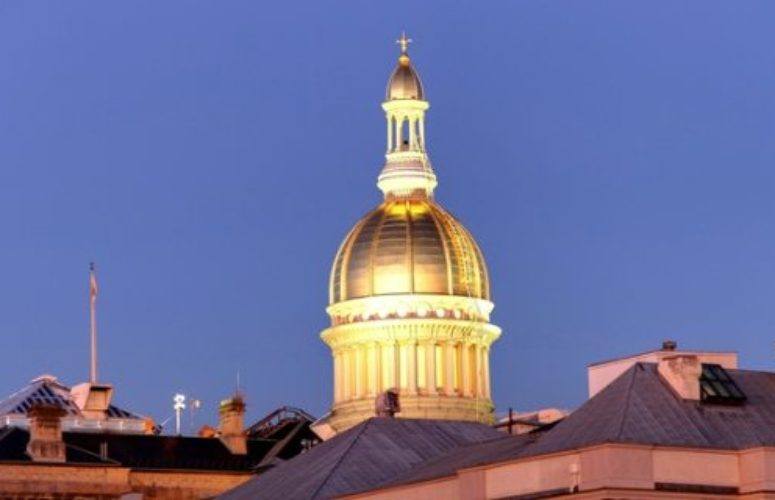
Career Plan B for the COVID-19 Class of 2020
By Anthony Birritteri, Editor-in-Chief On Apr 27, 2020Four years of higher education learning may be coming to an uneventful end for an estimated 3.9 million college seniors across the country – better known as the COVID-19 Class of 2020. Under coronavirus circumstances, they will not be marching to “Pomp and Circumstance” and receiving their diplomas among throngs of classmates, their respective families and friends. Worse yet, they are being jettisoned into an economy in which 26 million Americans have lost their jobs within a month’s time. It is an economy where the unemployment rate, according to most economic experts, is 15% and may reach 20%, far worse than during the height of the Great Recession.

Bruce Freeman, motivational speaker and professor at Seton Hall University.
What is the career advice for these seniors? It is definitely not “plastics” as a family friend advised the character of Benjamin Braddock in the film “The Graduate.” According to Bruce Freeman, a motivational speaker and professor at The Stillman School of Business at Seton Hall University, where he teaches marketing and management, the sound advice today is to have a “Career Plan B.”
Every semester, Freeman has his students write a paper on what their career backup plan would be if their main career goals do not come to fruition. The assignment stems from Freeman’s real-life experiences in the private sector. Early in his career he was let go from his editorial position at PC Magazine when the publication made personnel changes. He soon started a public relations firm specializing in high-tech companies. Then, a little more than 10 years ago, Freeman was diagnosed with multiple sclerosis. He had to limit his public relations activities. However, knowing he had to pay the family bills and get his two daughters through college, he persevered in a career full of Plan B options, including teaching, motivational speaking (with presentations at places such as The Wharton School of Business and Berkeley College – see www.BruceFreemanSpeaks.com), author, radio host, nationally syndicated columnist (“The Small Business Professor”), and more.
Based on his personal experiences, he tells his students they should always have a career Plan B. “It’s an insurance policy,” he says, especially in the current economic climate.
One starts forming a Plan B by taking an inventory of his or her skills: what they do, and what they know, Freeman says. “If you are a teacher, for example, forget about the occupational title and think about the skills you have, such as presenting, writing, evaluating, teaching and testing, for example. Those skills might be transferable into a sales position,” he gives as an example.
For Robert Towey, a senior at Seton Hall who is ready to graduate, the Plan B exercise, especially in today’s economic climate, was a “gut check.” Towey is a double major (journalism and finance). His Plan A is to land a job as a broadcast journalist. His Plan B is to become a certified financial planner.
“In a perfect world, I would land a broadcast news position in a small market (say Nebraska, Kansas or Arkansas, for example) and, after a year or two, start advancing my way to larger markets. I have reached out to these markets, but the situation in terms of hiring right now is dire,” Towey says.
Because it is even more difficult to obtain a broadcasting related job in the New York or Philadelphia market, Towey believes his Plan B option, becoming an asset manager, has more chances of succeeding, especially since he lives close to New York, the financial center of the world. “I am fully prepared to take a year or two and study for the CFP exam and enter financial planning,” he says. “Unilaterally, however, job prospects are bad right now across all positions. I don’t think financial planning is an exception.
“I checked LinkedIn religiously for job postings and there has been a noticeable downturn in the rate at which jobs are becoming available compared to last fall,” Towey says. “Over the last three years, the economy and job market were skyrocketing. It was a natural assumption to think [job] opportunities would be there when I graduated. Then the pandemic hit and you realize that the world of three or four months ago is not the world we live in today.”
Working on his Plan B assignment forced Towey to take a deeper and more thoughtful look at his second major because, “I was going full throttle with broadcast journalism and I didn’t really have time to think of a backup plan. The assignment made me think about the logical steps to take for a successful Plan B. It was a pragmatic exercise.”
He also believes he could blend his two career goals. “Your Plan B could evolve in an unorthodox fashion to include all of your plans and dreams. Certainly writing [financial news articles] in some capacity for a financial firm is something that I would not rule out in addition to managing assets and analyzing investment opportunities for clients,” Towey says.
For Trevor Donatacci, a junior at Seton Hall who is majoring in finance and entrepreneurship, Plan B involves opening a bakery. Being a financial analyst is his Plan A, and luckily, he can wait a full year until he graduates for the economy to turn around and job opportunities to increase in the field.
He comments, “I have always enjoyed baking and cooking, and starting my own business. Being my own boss has also been a passion of mine, and opening a bakery is something realistic … something I could see happening in the future.”
Of the Plan B assignment, he says, “It opened my eyes because you never know what will happen. Whether it’s the economy, a natural disaster or a virus, there is always going to be something you can’t control and you should always have a backup plan ready so you could provide not only for yourself, but for your family as well.”
He discovered his own personal strengths during his Plan B assignment. “I’d say I am determined and persistent in trying to find a solution or finding a way of making something out of nothing … of staying focused, thinking out of the box and moving forward in both my academic and career paths. The Plan B assignment allowed me to think of my career as a journey rather than being at one job for the rest of my life. There are going to be ups and downs,” he says.
Bruce Freeman’s Plan B assignment could not have come at a more appropriate time for his students. He advises: “You still don’t have to give up on Plan A. The situation we are in can be over in a year or two. However, if Plan B takes off and you don’t go into what you originally wanted to do, that’s fine too. In my life, I’ve surmounted obstacles because I’ve had to pay the bills.
“Things happen in life that are not your fault, but they are your responsibility,” he concludes.
To access more business news, visit NJB News Now.
Related Articles:





